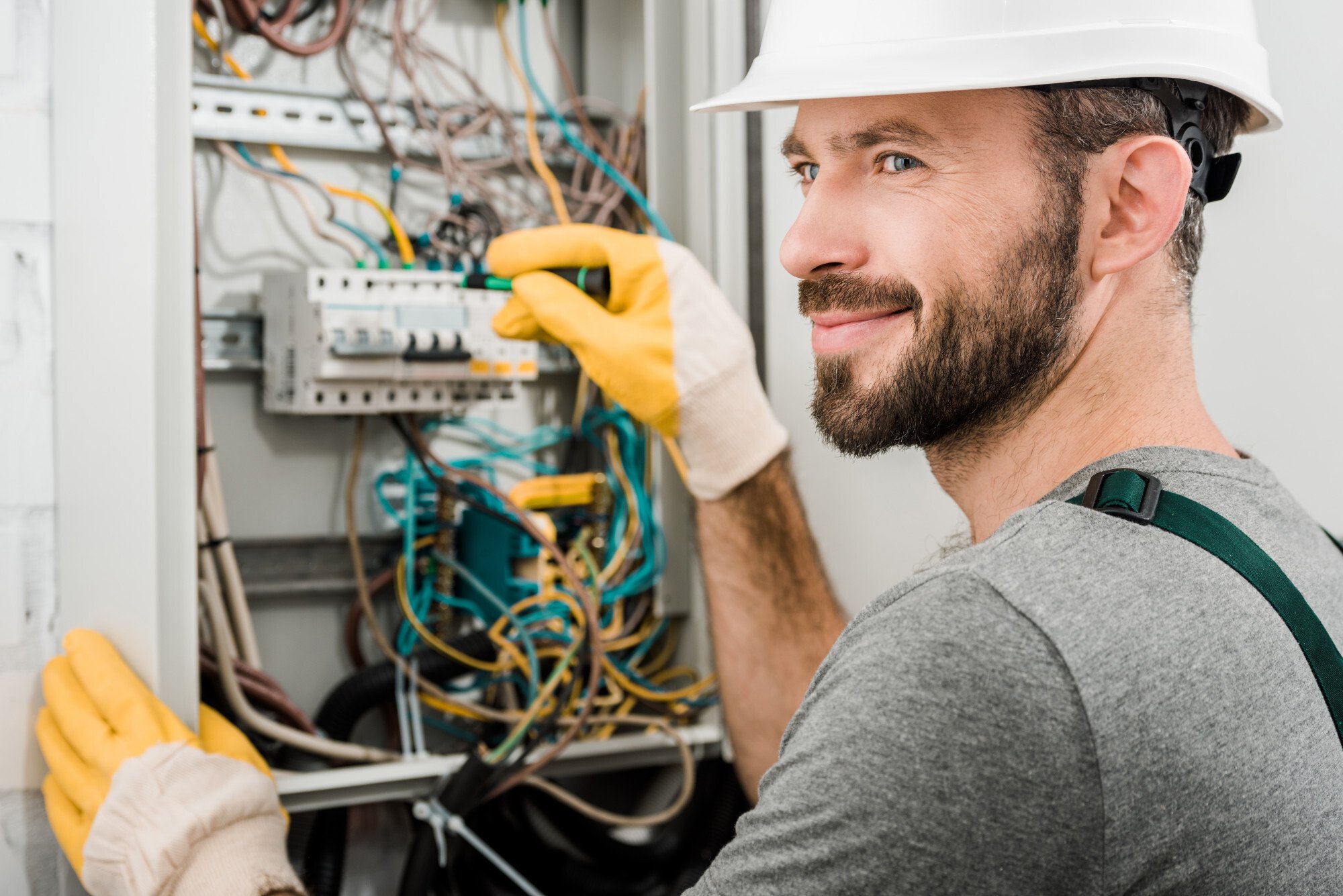How to Become a Commercial Electrician

A commercial electrician is the type of person who installs power outlets and lighting. The wiring that commercial electricians install is usually done following a three-phase approach, which means that two smaller legs run one voltage and one larger leg runs a higher voltage. The three-phase approach is appropriate for buildings with multiple electrical outlets, and it can range from 120 volts to 208-240 volts or 277/480 volts. The wires that run in a building's walls are exposed, but they are protected by conduit.
A commercial electrician will typically work on construction sites for commercial buildings. They may also perform maintenance on the electrical systems in active commercial buildings. In both cases, the hours of work are long, and they may be required to work early in the morning or late at night. The educational requirements for a residential and a professional electrician are similar, with a high school diploma or GED or an apprenticeship completing the educational requirements. To become a commercial electrician, you need to complete a two-year technical school program or a vocational school.
A commercial electrician will be trained to install wiring, control systems, and other electrical systems in commercial buildings. They will supervise helpers and apprentices while performing their job. They begin projects by reviewing blueprints and building codes and using testing equipment to diagnose issues. A commercial electrician will discuss the project with customers to ensure the customer's satisfaction. They will also use hand and power tools in order to complete their work efficiently and properly. A commercial electrician is highly skilled in repairing and maintaining electrical systems.
A commercial electrician's career will typically consist of four to six years of formal training. After completing formal education, a commercial electrician will begin his or her apprenticeship. This training period will typically last four to six years, and the first three to five years of training are devoted to hands-on training. The apprenticeship phase is followed by on-the-job training with an employer. To be a journeyman, you need to complete the required training hours, pass the state exam, and complete a licensing examination.
Before you can work as a commercial electrician, you must complete a high school degree or GED, and complete a two-year apprenticeship. The educational requirements for becoming a commercial electrician are the same. To become a licensed commercial electrician, you must have a degree in electrical engineering and have experience working in a commercial environment. A residential electrician must have a high school diploma while a certified master's degree is necessary. Here is more info about the best griffin electrician who offer great services.
An electrician who specializes in industrial or commercial settings needs to have extensive training. While minor mistakes are easily fixed in a residential or commercial capacity, an industrial electrician must be trained to work on industrial electrical equipment. In the same way, an electrical engineer can specialize in a number of fields. Whether you want to be an industrial electrician or a residential one, a licensed commercial electrician will have the skills to help you meet your goals. This career can be a rewarding and lucrative one. For more info, check out this related link: https://en.wikipedia.org/wiki/Electrician.
